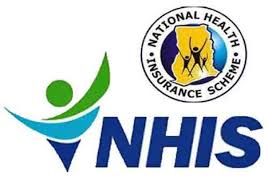The move, essentially, was to enable the funding of projects, programmes and policies towards the attainment of Universal Health Coverage (UHC) in Nigeria by 2025. The goal of the UHC, according to the World Health Organisation (WHO), is to ensure that all people and communities obtain health services that they desire without undergoing financial hardship. One of the telling outcomes of the approval of the one percent Consolidated Revenue Fund has been the emergence of State Health Insurance Schemes (SHIS) across the country.
Several states have launched, and are currently operating their locally developed health insurance schemes. No doubt this is a step in the right direction. Health insurance is the main pillar for the attainment of the UHC in the National Health System. It is part of the social protection architecture to ensure that Nigerian citizens get quality health services when and where they need it, without suffering undue financial hardship.
Coupled with the comprehensive revitalization of functional Primary Healthcare Centres, rural dwellers, and the urban poor are now hopeful of access, at least, a basic healthcare package whenever they go to the hospital, even when they do not immediately have the finances to pay for treatment. It is expected that the gap of providing quality healthcare that is affordable, accessible and available to all Nigerians is gradually being closed. In states that have blazed the trail (and they are 14 currently) by establishing their own health insurance schemes, the ultimate desire must remain the core principle of health insurance, which aims at reducing out-of-pocket payment.
Provision of a basic minimum package of health services to citizens without the undermining challenges of financial barriers should be guaranteed once and for all. It is desirable that the natural progression of the State’s Health Insurance Scheme in the spectrum of reforms aimed at removing financial barriers to healthcare for ordinary Nigerian is not truncated. Rolling out these plans should primarily remain focused towards achieving the overall goal of enabling all residents to have unhindered access to quality healthcare irrespective of their social or financial status.
There is a need for state governments to beef up the existing health facilities and strengthen health systems within the states. This should be accompanied by appropriate accountability mechanisms to ensure that monies generated are utilized as they should – to the fullest benefit of the people.
The state governments should not see the SHIS as another method of generating revenue or another political campaign mandate. Rather, the programme and activities of the scheme should have the health of the greatest majority at its core. Most importantly, the state governments need to understand that for the scheme to work, a good percentage of the state budgets need to be committed to the health sector to beef up capital health insurance at both the state and primary healthcare levels. It should also be clear that the funds from the health insurance pool are not meant for infrastructural developments.
State governments need to understand that the citizens are major stakeholders in this process, and as such, they must be carried along every step of the way. They should be able to contribute to the entire decision-making process, not just making monetary contributions. There should be a system of addressing inquiries, complaints, and grievances of the people as they arise, and the state governments must ensure that they are as responsive as they can be in this regard. If properly implemented, this will be the first social insurance programme that caters for everybody. That is commendable.
Source: Pharmatimes
 Over the years, the failure of the National Health Insurance Scheme (NHIS) to fulfill its primary objective of providing the required health insurance coverage for all Nigerians has compounded the fortunes of those at the lowest rung of the economic ladder.
Over the years, the failure of the National Health Insurance Scheme (NHIS) to fulfill its primary objective of providing the required health insurance coverage for all Nigerians has compounded the fortunes of those at the lowest rung of the economic ladder.